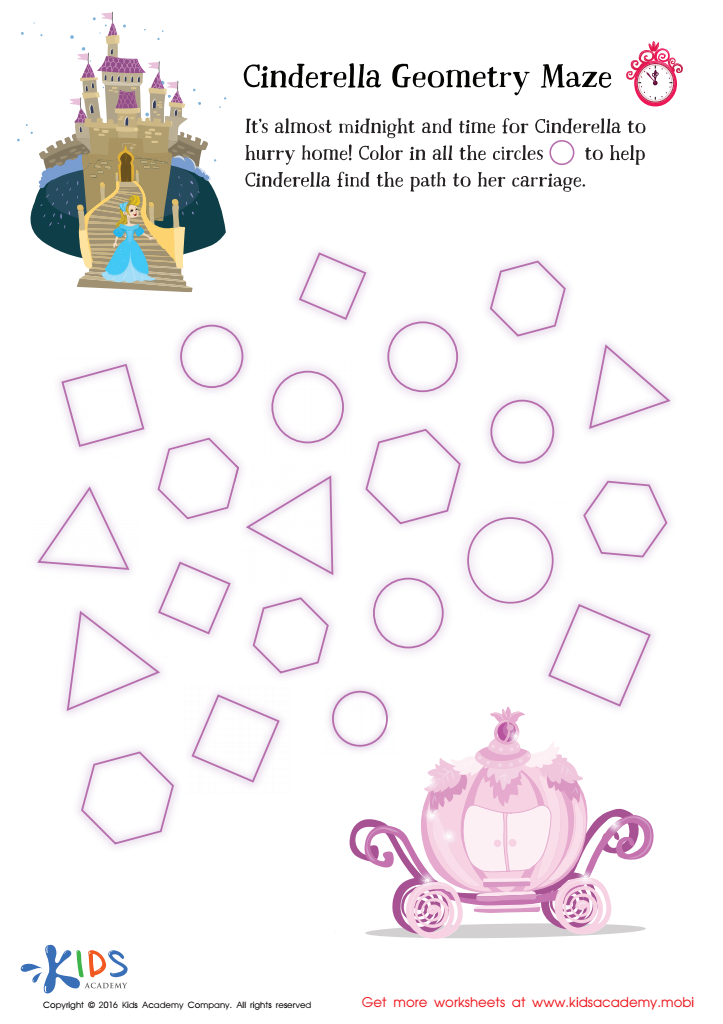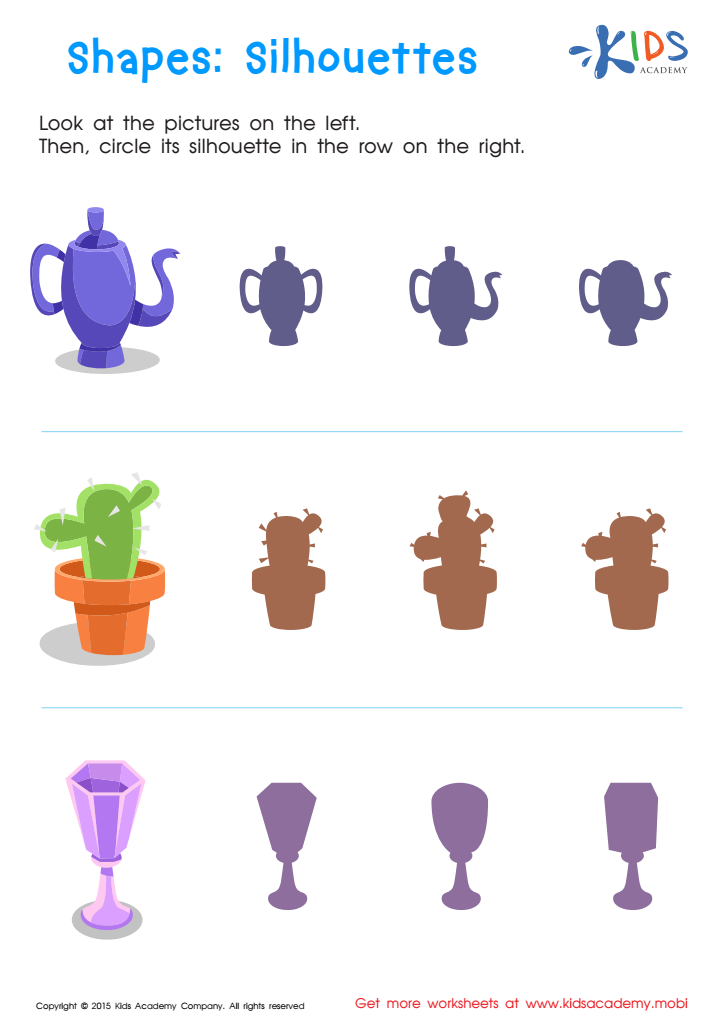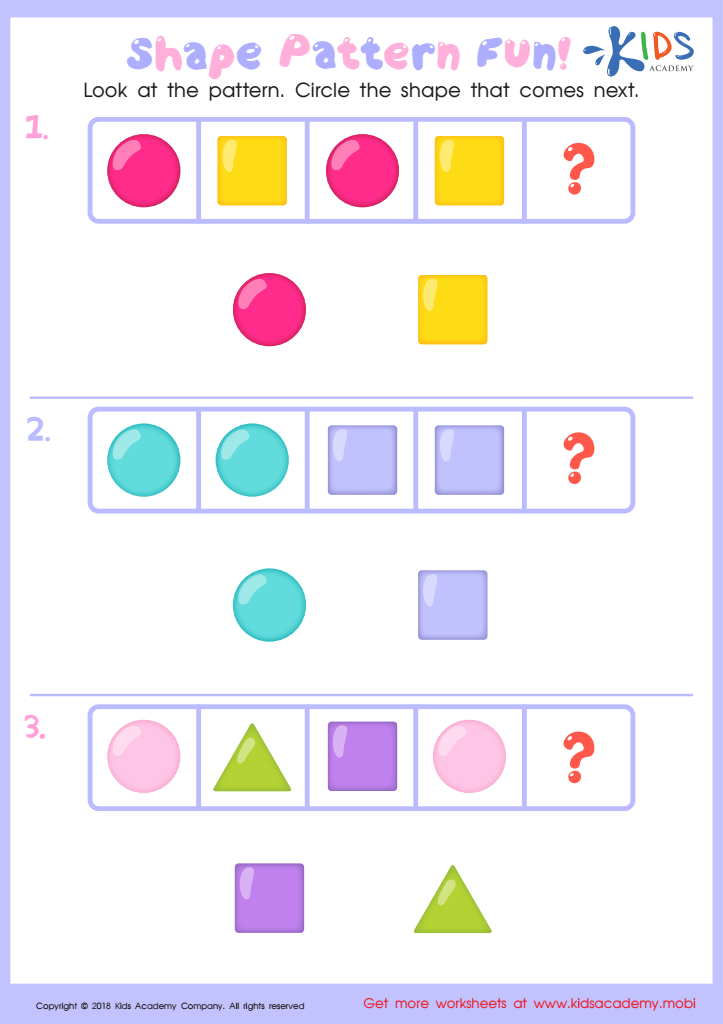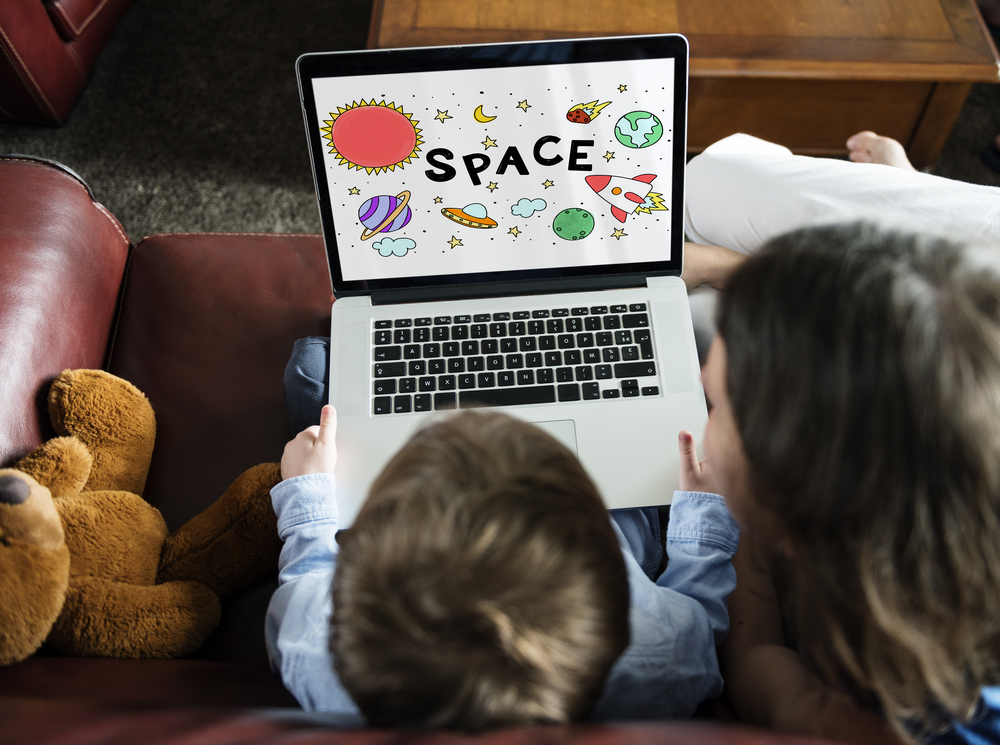Problem-Solving Skills Normal Matching Worksheets for Ages 4-7
5 filtered results
-
From - To
Nurture your child's critical thinking and cognitive abilities with our "Problem-Solving Skills Normal Matching Worksheets" specially designed for ages 4-7. These engaging worksheets promote essential skills by offering fun and interactive activities that challenge young minds. Through matching exercises, children enhance their logical reasoning, spatial awareness, and pattern recognition. Each worksheet is crafted to suit the developmental stages of early learners, making problem-solving an enjoyable and educational experience. Perfect for early grade students, these worksheets support foundational learning and offer a head start in math proficiency. Explore our resources and help your child build strong problem-solving skills today!


Make the Same Pattern Worksheet


Cinderella Geometry Maze Worksheet


Logic Game Sorting Worksheet


Silhouettes – Shapes Worksheet


Shape Pattern Fun Worksheet
Developing problem-solving skills in children aged 4-7 is crucial for their overall cognitive and social development, and it starts with engaging them in normal matching tasks. These tasks, whether they involve matching shapes, colors, objects, or simple patterns, lay the foundation for higher-order thinking and reasoning skills. When children practice matching activities, they enhance their abilities to observe, compare, and categorize, all of which are essential components of problem-solving.
For parents and teachers, fostering these skills at an early age sets the stage for future academic success. Problem-solving is a core competency in subjects like math, science, and reading. By mastering basic matching tasks, young children develop attention to detail and analytical thinking, which are necessary for more complex problem-solving situations they will encounter as they grow older.
Moreover, developing problem-solving skills through matching exercises promotes confidence and independence in children. Successfully completing a matching task provides a sense of accomplishment, boosting self-esteem and encouraging a positive attitude toward learning. It also helps children learn to approach challenges with perseverance and creativity, equipping them with essential life skills that extend beyond the classroom.
Ultimately, investing time in developing problem-solving abilities in young children not only supports their academic journey but also prepares them for real-life situations, making them more adaptable and resilient individuals.

 Assign to My Students
Assign to My Students
















